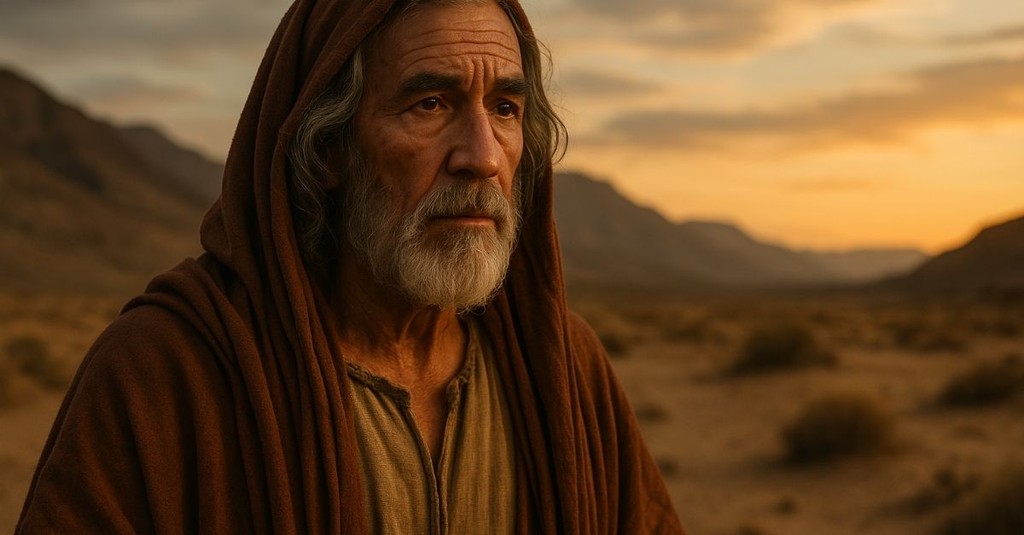
We have the amazing gift of the Bible because God inspired authors over hundreds of years to write down history, teaching, or songs for us to engage with and learn more about God and his redemptive plan.
The four Gospels in the New Testament provide a unique genre in history. These tell the story of Jesus’ life, focused on him. Generally influenced by the Roman historians of the day, these four books had a specific purpose: to reveal how God came to earth to open the way for us to have a restored intimacy and purpose with the Father through the Son. With the acts of Jesus as the framework, they also contain his teachings and prophecy so that Christians could be discipled in Christ’s words.
One of those writers was the apostle John, one of those closest to Jesus. He wrote five books of the New Testament in total: the Gospel of John, three letters to the church, and the apocalyptic Revelation. Looking at the authors of these inspired words helps us delve a little deeper into understanding the Bible and even how we can be called by God, as well.
Here are 7 facts about the apostle John.
Photo Credit: Chat GPT AI

1. John Was a Son of Zebedee
John and James were the sons of Zebedee. Jesus approached the two men while they mended their fishing nets with their father. “Going on from there, he saw two other brothers, James son of Zebedee and his brother John. They were in a boat with their father Zebedee, preparing their nets. Jesus called them.” (Matthew 4:21) John worked with his father’s business as a fisherman, a common trade along the Sea of Galilee. Fishing proved to be very physical work, done late at night or early in the morning. Proper nets were crucial to their success, often torn and needing repair.
John’s family lived in the Galilee region, probably near the town of Bethsaida or Capernaum. These larger towns sat on the shore of the Sea of Galilee and were known for fishing. John lived among the Jewish workers and was a second-class citizen of the Roman Empire. John’s experience would have been long hours of physical labor. A hard life, but it would have been advantageous for travel and persevering in following Jesus.
Jesus used John’s fishing experience to call him to something higher. If John would follow Christ, the Son of God would make him a fisher of men (Matthew 4:19). John’s working-class occupation became a symbol for evangelism and preaching the Gospel of the Kingdom to gather other disciples. Like John, God still calls ordinary people to follow him in extraordinary purposes.
Photo Credit: Mickey O'Neil/Unsplash
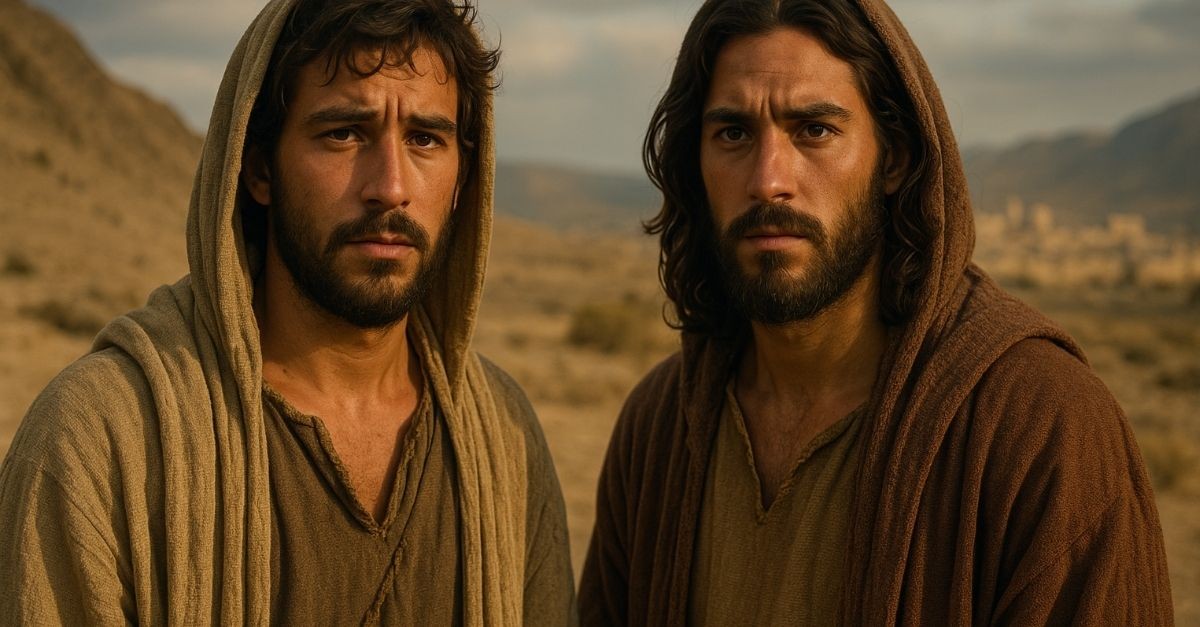
2. Jesus Called James and John the Sons of Thunder
As happens when people travel and spend a great deal of time together, they give each other nicknames. Jesus himself gave John and James the name “Sons of Thunder.” Mark 3:17 lists them among the main disciples, “James, son of Zebedee and his brother John (to them he gave the name Boanerges, which means, ‘sons of thunder’).”
While the name might have referenced their passionate personalities, Luke 9:54 gives an interesting account. A certain Samaritan village refused to welcome Jesus, rejecting the Messiah. James and John asked Christ, “Lord, do you want us to call fire down from heaven to destroy them?” On the one hand, they had passion and loyalty for the mission, maybe calling back to how Elijah called down fire on the prophets of Baal. But it was a worldly passion. Jesus rebuked them. His Kingdom wouldn’t happen by force and reactionary anger but compassion and love, mercy and truth.
Later, in Acts 8, Peter and James bring the Holy Spirit to the Samaritan region, a godly act of thunder and baptism of the Spirit, fire, redemption, and salvation instead of condemnation.
As with John, we often need God to reimagine our expectations of what ministry and purpose look like. We won’t spread a heavenly, loving Kingdom through judgment and condemnation. The Gospel offers a greater heavenly fire to all who believe through the Holy Spirit, one that gives life and saves.
Photo Credit: Chat GPT AI
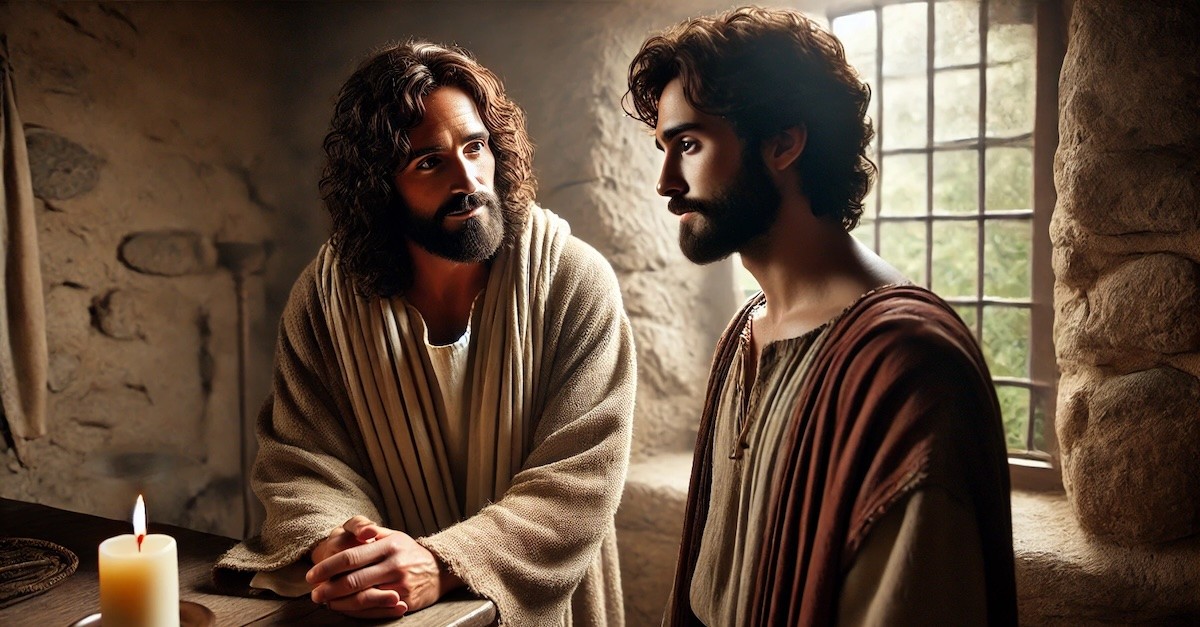
3. John Was Part of Jesus' Inner Circle
Jesus had different levels of disciples. He had the general crowd. Then he had the 70 or 72 disciples, who he sent out by twos to preach the Kingdom Gospel (Luke 10). Of course, he chose his closest twelve disciples, who became the apostles (apart from Judas, who betrayed him). Even among the twelve, Jesus had an even more intimate group of three—Peter, James, and John. He chose these three to see some important moments.
Matthew 17:1-2 reveals one of these moments, the Transfiguration. “After six days, Jesus took with him Peter, James, and John the brother of James, and led them up to a high mountain by themselves. There he was transfigured before them. His face shone like the sun, and his clothes became as white as the light.” Jesus revealed his divine glory, confirming how he was both fully man and God at the same time. John had the privilege of witnessing Jesus as the Son of God. Beyond showing his glory to those close to him, faithful disciples, the Transfiguration also provided them strength for the trials to come, especially when Jesus suffered death on the cross.
We see this event’s influence on John’s letters and Gospel, where he clearly emphasizes Jesus’ divinity along with his humanity. Like John, God calls us to behold him as he is, in his glory and humanity. Such a perspective gives us strength and hope for the journey.
Photo Credit: DALL.E 2024 via ChatGPT
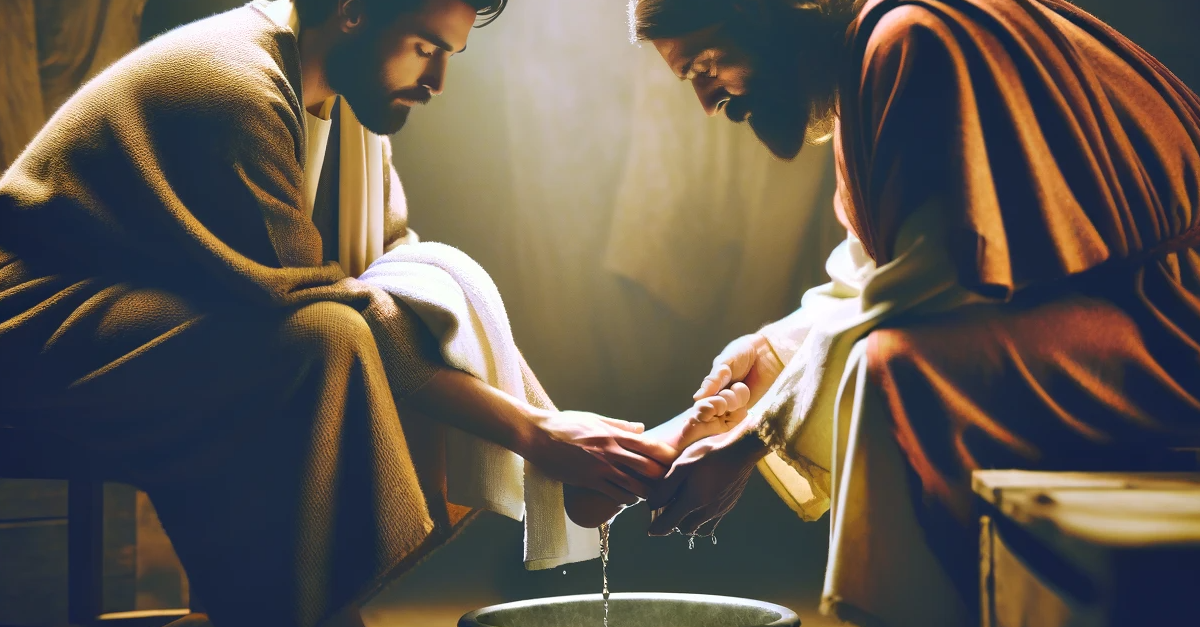
4. John Referred to Himself As "The Disciple Jesus Loved."
Not only was John one of the intimate three, he calls himself “the disciple Jesus loved.” “One of them, the disciple whom Jesus loved, was reclining next to him.” (John 13:23) In context, the passage describes a moment at the Passover dinner the night before Jesus’ death, what we call the Last Supper. Culturally, they sat on the floor around a table to eat, and John reclined against Jesus’ chest, an action revealing their closeness.
The Bible also reveals a deeper relationship between Jesus and John at the cross. Out of all the disciples, only John stayed with Jesus through his suffering and execution. In John 19:26-27, Jesus places his mother, a widow, into John’s care, an amazing act of trust and love.
It might not be a prideful thing for John to see himself as especially loved by Jesus. Throughout his Gospel and letters, John teaches how God’s love defines all of us. “God is love. Whoever lives in love lives in God, and God in them.” (1 John 4:16) John saw himself as loved by God, and he sought the same identity for everyone.
We should also learn this as our identity. We are loved by God. That love transforms how we see God, ourselves, and others.
Photo Credit:Image created using AI technology via DALL.E on ChatGPT

5. Mary Lived With John after Jesus Was Crucified
Mary lived with John in his home, beginning at the cross. “When Jesus saw his mother there, and the disciple whom he loved standing nearby, he said to her, ‘Woman, here is your son,’ and to the disciple, ‘Here is your mother.’ From that time on, this disciple took her into his home.” (John 19:26-27) Throughout the rest of Mary’s life, what we read of John through Acts, at least, John preached and ministered while caring for the mother of Jesus.
Jesus revealed his love for Mary. Even while suffering on the cross, he thought of others, specifically his mother. With Joseph gone, Jesus had the responsibility for caring for her as a widow. Jesus had other brothers (Matthew 13:55-56), who perhaps would have taken responsibility for Mary. But Jesus asks John, revealing his special trust in John, closer than a brother.
Christ teaches us a couple of lessons here. First, our ministry and purpose should never lead to dismissing family responsibilities. God instituted the family in the Garden, and he wants us to show his love by caring for them. Second, Jesus shows how there is also a greater, eternal family in the church. While not connected by blood, we treat people in the church like close family, taking responsibility for their care.
Photo Credit: ©iStock/Getty Images Plus/shuang paul wang
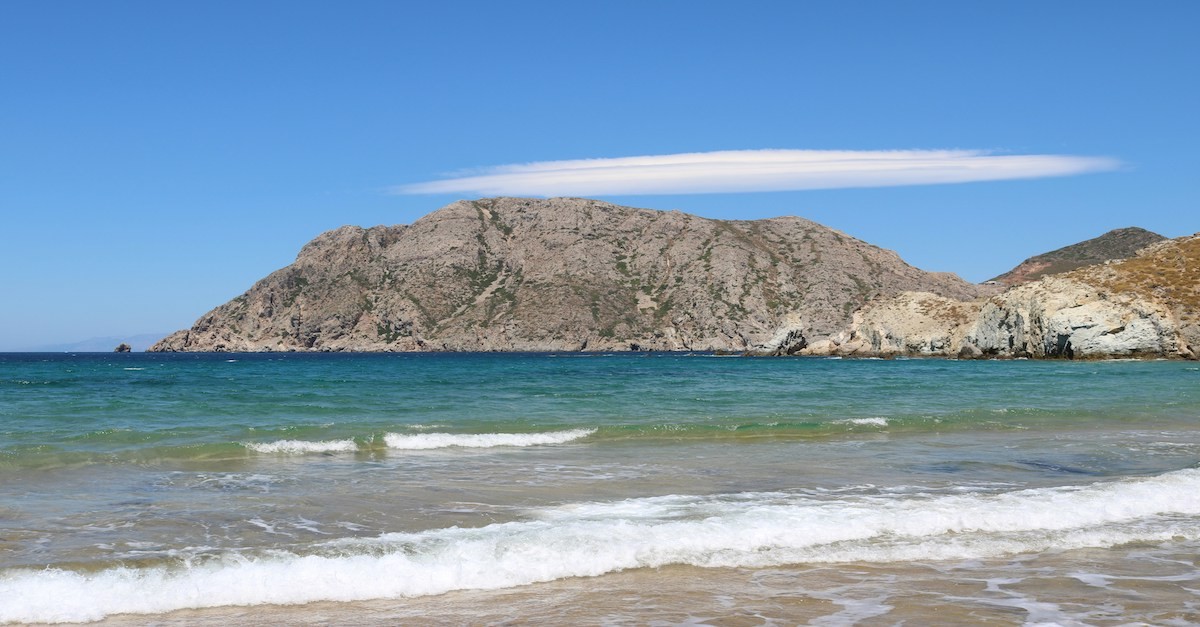
6. John Was Exiled to the Island of Patmos
Later in his life, John was exiled to the island of Patmos, a rocky and barren place in the Aegean Sea. “I, John, your brother and companion in the suffering and kingdom and patient endurance that are ours in Jesus, was on the island of Patmos because of the word of God and the testimony of Jesus.” (Revelation 1:9) As a result of his preaching the Gospel and bearing witness to Jesus as the Son of God, John suffered punishment and exile at the hands of the Roman Empire.
Roman authorities used Patmos as a place to send political and religious prisoners. Exile hoped to silence the man and his influence. However, instead of silence, God used this time to give John a phenomenal revelation, the vision and Word recorded in the book of Revelation. Even in this isolation, like the apostle Paul, God still used John to preach the Gospel, specifically the future return of Jesus and how God will make everything right through a final victory over evil.
John’s exile shows us how preaching Jesus can lead to suffering but not defeat. God can overcome any situation, and his power allows us to still be used. No power on earth can stop the power and redemption of heaven, which is the whole point of Revelation.
Let us be encouraged. Suffering for Christ is never wasted, nor does it mean God stops using us. In fact, he might use injustice and difficult times to increase his glory.
Photo Credit: Unsplash/Danai Tsoutreli

7. John Died of Natural Causes
According to early church tradition, after returning from the Patmos exile, John became a key leader in the Ephesian church. He taught, discipled, and mentored the next generation of disciples and church leaders. John’s influence established a strong Christian community there. A main early church father, Polycarp, claimed to have been discipled by John. Such a great leader sat under John’s teaching and witness. John’s writings and instruction regarding the divinity and humanity of Jesus, love, truth, and guarding against false doctrine can be seen in Polycarp and other church fathers from the second century.
The other main apostles all faced martyrdom for their faith and ministry. However, unlike them, church tradition tells us John died a natural death. He did suffer exile and great persecution, and grief as his friends and family were executed for the faith, but he remained true to the mission even to the end.
John’s natural death didn’t mean he suffered less than the others. He still encountered pain and hardship. But God had a different path for John, a long life bearing firsthand witness to the life, death, resurrection, and future return of the Lord Jesus Christ. His writings continue to give us his testimony and call us to love and right doctrine, a legacy of eternal impact. We can all have this by remaining true to the call of God on our own lives.
Photo Credit: Getty Images/Divaneth-Dias

Originally published Friday, 23 May 2025.
